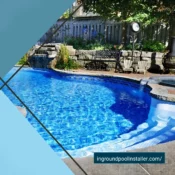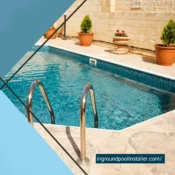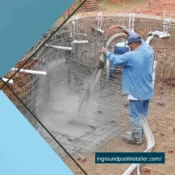Understanding Pool Types: Advice From an Expert Inground Pool Installer

Understanding Pool Types: Advice From an Expert Inground Pool Installer
In the realm of inground pool installer, selecting the appropriate type is a decision that demands a comprehensive understanding of various factors. Concrete, vinyl liner, and fiberglass each present distinct advantages and challenges. Concrete pools boast unparalleled durability and design versatility, whereas vinyl liner pools are attractive for their cost-effectiveness and customizable aesthetics. Conversely, fiberglass pools are favored for their rapid installation and minimal upkeep. Yet, the decision doesn't rest solely on material; considerations such as soil composition, intended usage, budget constraints, and adherence to local regulations also play pivotal roles. How do these elements converge to influence the ideal choice?
Types of Inground Pools
Inground pools come in several distinct types, each with unique characteristics and construction methods tailored to specific needs and preferences. The primary categories include concrete, vinyl liner, and fiberglass pools, each distinguished by materials and installation techniques.
Concrete pools, often referred to as gunite or shotcrete pools, are renowned for their durability and design flexibility. These pools are constructed by spraying a concrete mixture over a rebar framework, allowing for customized shapes and sizes. While they require more installation time and maintenance, their robustness and adaptability make them a popular choice for those seeking personalized aesthetics.
Vinyl liner pools, on the other hand, offer a cost-effective option with a smoother surface. Constructed with a flexible liner over a steel or polymer wall frame, they provide a variety of liner patterns and colors, appealing to those who value aesthetic customization within a budget.
Fiberglass pools are pre-fabricated shells installed directly into an excavated site. Known for their quick installation time and low maintenance, they are ideal for those who prioritize convenience and longevity. Each pool type has its distinct advantages, enabling homeowners to choose based on specific desires such as design flexibility, cost, and maintenance requirements.
Choosing the Right Pool
Selecting the appropriate pool type requires a thorough evaluation of various factors beyond just the materials and construction techniques highlighted previously. A comprehensive understanding of site-specific conditions is essential. Consider the soil composition, which influences the pool's structural integrity. For instance, clay-rich soil may necessitate additional reinforcement. Climate factors are equally critical; regions with freeze-thaw cycles demand resilient materials to withstand temperature fluctuations.
Furthermore, intended use significantly impacts pool selection. Aesthetic preferences, such as seamless integration with the landscape, might lead some to opt for a naturalistic design, while others prioritize functionality and choose a lap pool for exercise. The pool's size and shape should align with family dynamics and anticipated usage, ensuring that all users feel a sense of belonging and satisfaction.
Budgetary constraints must be correspondingly assessed. While initial construction costs are pivotal, long-term maintenance and energy efficiency also bear consideration. Saltwater systems, though initially costly, may offer reduced chemical expenses over time.
Additionally, local regulations, including zoning laws and safety requirements, must be thoroughly reviewed to ensure compliance and avoid potential legal complications. Engaging with an experienced pool installer can provide valuable insights into these multifaceted decisions, ensuring an optimal outcome.
In conclusion, the selection of an inground pool installer requires careful consideration of factors such as soil composition, intended use, budget, and local regulations. Concrete pools offer unparalleled durability and customization, while vinyl liner pools provide cost-effective aesthetic options. Fiberglass pools, favored for their rapid installation and minimal maintenance, are increasingly popular. Notably, the global swimming pool market is projected to grow at a CAGR of 3.8% from 2021 to 2028, reflecting a rising demand for residential pool installations.
All Categories
- Concrete
- Concrete
- Concrete pools
- Construction
- Custom Features and Add-ons
- Design
- Design
- Design
- Design & Construction
- Design and Planning
- Features & Customization
- Infinity edge
- inground pool
- inground pool builder
- inground pool installer
- Installation
- Installation Process
- Legal & Administrative
- Materials
- planning and design
- Pool Aesthetics and Customization
- Pool Design
- Pool Equipment
- Pool Features
- Pool Features
- Pool Installation Process
- Pool Materials
- Pool Materials
- Pool Types
- Project Planning
- Renovation
- Resurfacing
- top sights
- Types of Inground Pools
- Types of Inground Pools
- Types of Inground Pools
- Types of Inground Pools
- Water Treatment



